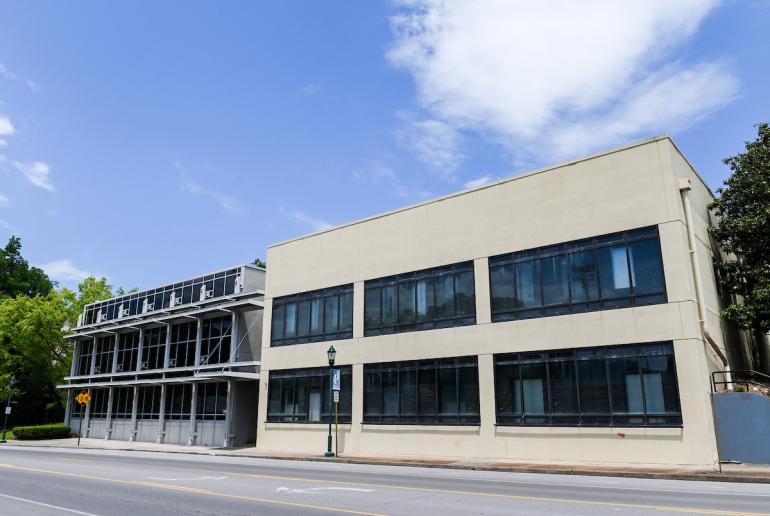Quantum Center Infrastructure

Multi-Disciplinary Research Building (MDRB)
Current lab space for Quantum Networking and Communications is in the Multi-Disciplinary Research Building (MDRB). The MDRB includes faculty offices, student cubicles, a 1,500 square foot computer room, a conference/meeting room accommodating 25 people, an 80-seat auditorium, two secure expandable suites of rooms dedicated to proprietary research, including ITAR-compliant space. The Quantum Networking and Communications lab provides access to the quantum network deployed by EPB[1]. Optimized for the C-band (1530–1570 nm) and being reconfigurable, this network provides a perfect testbed for implementations of quantum communications, distributed quantum computing, and quantum sensing on a commercial metro-scale fiber-optic infrastructure. The 10-year agreement between UTC and EPB allows for scheduling access to all equipment on the network. The equipment in the lab at UTC includes, among others, entangled photon pair sources, and an 8-channel superconducting nano-wire single photon detector (SNSPD). Technical support by is available on demand 24/7.
Lab space designated for UTC Quantum Sensing research is in Grote Hall, an education and research complex that was recently renovated and houses 28 laboratories. It is equipped with an advanced temperature and humidity control system and has excellent vibration and ambient light isolation design for quantum sensing experiments. It supports research using discrete-variable (DV) and continuous-variable (CV) paradigms in free space, complementing the DV capability we have in the Quantum Networking and Communications lab in fiber-optic. Work is planned to expand the lab to include CV paradigm in fiber-optic by building a single-mode squeezed state (SMST) light source at 1570 nm, the wavelength used by the EPB quantum network. Integrating the SMST light source into the network infrastructure will enable quantum sensing experiments in both CV and DV paradigms in free space and fiber optic, which will significantly enhance R&D and educational capacity.
Access to Quantum Computing systems is ensured by UTC via engagements with Quantum computing companies, such as IonQ.
A Memorandum of Understanding between UTC and ORNL regarding collaborative activities in QISE was signed in June 2024. This includes internships for students, and collaborative activities among UTC faculty and ORNL QISE researchers.
[1] “Architecture of a First-Generation Commercial Quantum Network” D. Earl, et al., arXiv:2211.14871 (2022)